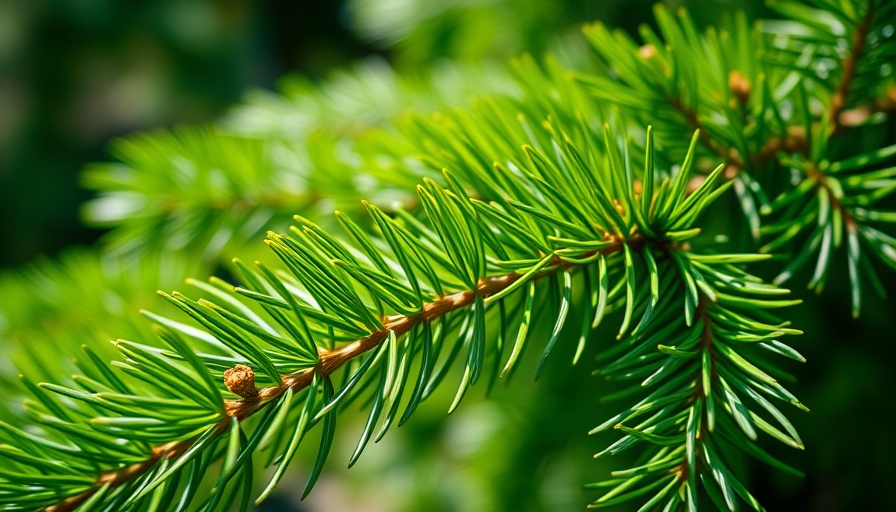
Unraveling the Beauty of Japanese Black Pines
The Japanese black pine, known scientifically as Pinus thunbergii, is an evergreen conifer renowned for its striking appearance and versatility in various garden settings. With dark gray to black bark and long, paired needles, it makes a bold statement that can elevate any landscape. In addition to its rugged aesthetic, this tree is widely recognized for its unique growth habits—especially impactful in the realms of bonsai and niwaki (Japanese topiary).
Understanding Its Origins and Ideal Conditions
Natively found in the coastal regions of Japan and South Korea, the Japanese black pine thrives in USDA hardiness zones 5-9. Unlike many other conifers that exhibit a pyramidal appearance, these trees often showcase an irregular, shrubby silhouette, making them suitable for a variety of landscaping needs, from coastal gardens to serene rock gardens. In home gardens, they typically range from 20 to 60 feet, depending on environmental conditions and maintenance practices.
Choosing the Right Cultivars for Your Landscape
The world of Japanese black pines boasts an impressive range of cultivars. Whether you’re seeking a majestic tree for a large landscape or a compact dwarf variety to suit a smaller garden, there's a choice for everyone. Look for varieties that not only complement your aesthetic goals but also suit your local climate and soil conditions. Some cultivars are particularly resilient, making them a great addition to any low-maintenance landscape.
Maintenance Made Easy: Tips for Care
Maintaining the Japanese black pine is a satisfying endeavor. Start by providing full sun exposure and ensuring they are planted in well-draining, sandy soil with a slightly acidic pH of 5.0 to 6.5. Regular watering is key, especially during dry spells. With mature trees, pruning can help maintain shape and promote healthy growth.
Combatting Pests and Diseases Effectively
Like all plants, Japanese black pines are susceptible to specific pests and diseases. Familiarize yourself with common threats such as aphids and pine needle cast. Implementing preventative measures, such as ensuring proper air circulation and monitoring for early signs of infection, will help safeguard your trees’ health. Organic gardening methods can be employed to combat these issues without harmful chemicals, aligning with sustainable gardening practices.
The Emotional Connection: Why Gardener’s Should Care
Embracing gardening creates a profound connection to nature—a sentiment echoed by many who cultivate their own spaces. Growing Japanese black pines not only enhances the visual appeal of your garden but also serves as a grounding act of self-expression. The time spent caring for these magnificent trees cultivates patience and joy, blossoming into lifelong passion.
Creating Community Connections Through Gardening
Gardening fosters a sense of community. Sharing knowledge about Japanese black pines or even swapping seedlings can connect you with like-minded individuals passionate about sustainable practices. Workshops and local gardening clubs often focus on native plants, opening doors to new ideas and friendships, enriching the gardening experience.
Final Thoughts: Transforming Your Space
The Japanese black pine embodies not just beauty but also resilience and adaptability. By choosing to cultivate these trees, gardeners not only enrich their landscapes but also contribute to a healthier ecosystem. As you create your own sanctuary filled with living beauty, let the Japanese black pine be a tree that inspires your journey in gardening.
Are you ready to enhance your garden with the beauty of Japanese black pines? Start planning your space today, and don’t hesitate to share your journey with your gardening community!
 Add Row
Add Row  Add
Add 




 Add Row
Add Row  Add
Add 

Write A Comment